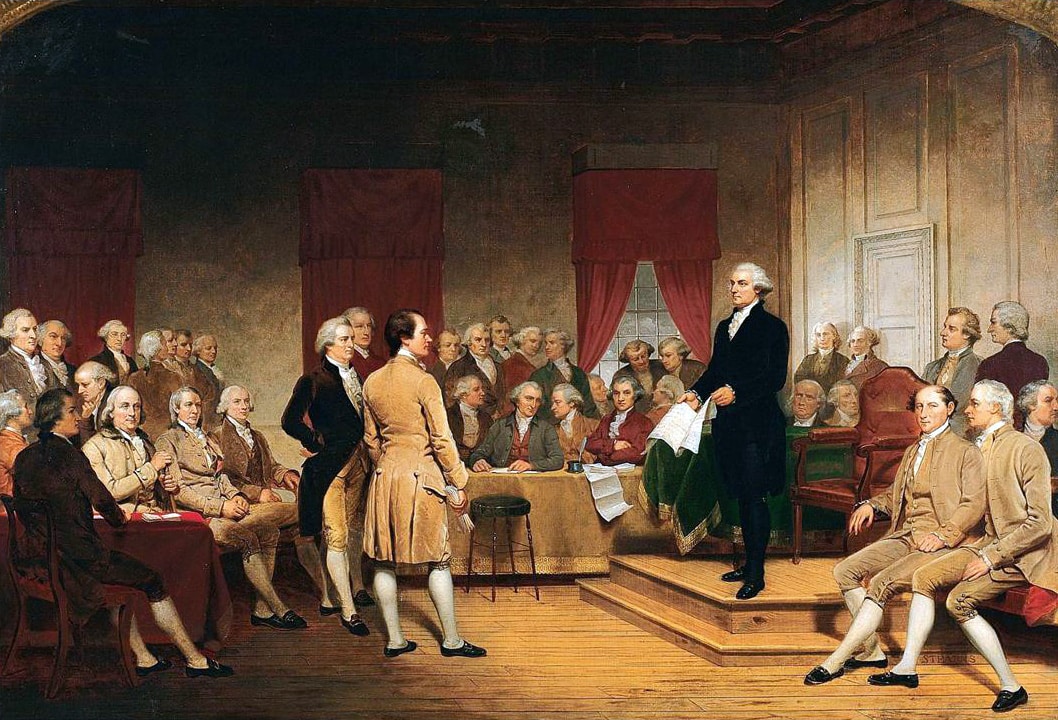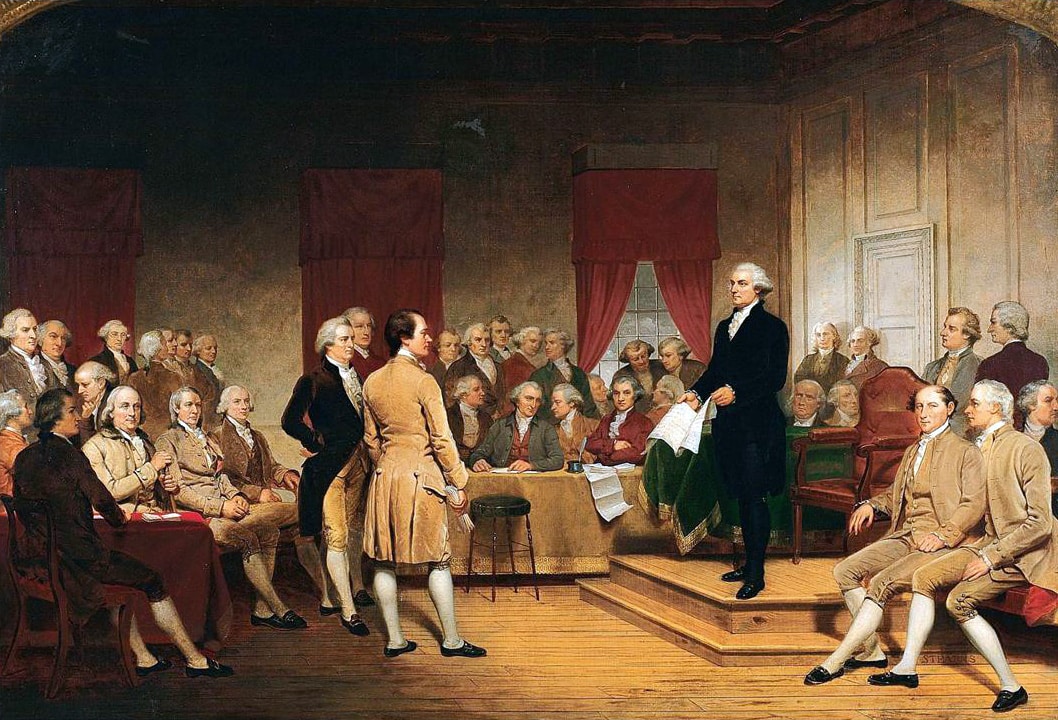The Texas House of Representatives approved a resolution (SJR 2) on Thursday requesting that the United States Congress call a new constitutional convention — the first since the Constitutional Convention of 1787 that resulted in the drafting of the current US Constitution to replace the then-in-operation Articles of Confederation. The state Senate had already approved a constitutional convention resolution, and Texas Governor Greg Abbott, in a Thursday statement, indicated his support.
It is not just the Texas government that is requesting a new constitutional convention. Jonathan Tilove reported Thursday at the Austin American-Statesman that ten other states have made requests similar to the Texas request that Congress call a constitutional convention to propose an amendment or amendments related to a few particular listed goals. The number is higher for state legislatures requesting a constitutional convention to propose a US balanced budget amendment.
If two-thirds of the states (34 states) propose a new constitutional convention, then the process stated in Article V of the US Constitution could bring into being a constitutional convention. Here is what Article V says regarding the matter:
The Congress, … on the Application of the Legislatures of two thirds of the several States, shall call a Convention for proposing Amendments, which … shall be valid to all Intents and Purposes, as Part of this Constitution, when ratified by the Legislatures of three fourths of the several States, or by Conventions in three fourths thereof, as the one or the other Mode of Ratification may be proposed by the Congress; Provided that … no State, without its Consent, shall be deprived of its equal Suffrage in the Senate.
Article V leaves some important details undefined. Among those details are who participates in a constitutional convention called by Congress and under what rules that constitutional convention would operate. Similar questions would need to be answered regarding state conventions should Congress choose conventions in states as the means to determine if the US constitutional convention’s proposals are ratified. In its call for the constitutional convention, Congress would likely fill in these gaps.
Note also that, despite the Texas resolution stating that the constitutional convention it seeks would meet “for the limited purpose of proposing one or more amendments to the constitution to impose fiscal restraints on the federal government, to limit the power and jurisdiction of the federal government, and to limit the terms of office of federal officials and members of Congress,” Article V recognizes no such restraints on a constitutional convention. Instead, Article V just says a constitutional convention would meet for the purpose of “proposing Amendments.” Article V could thus be interpreted as empowering the constitutional convention, once it exists, to ignore any limitations on the constitutional convention’s deliberations and proposals stated in states’ resolutions, as well as any such limitations Congress may attempt to impose
Maybe the US House and Senate would just name their members or some subgroup of Congress members as the constitutional convention delegates. Maybe the Congress would cut out the middlemen and appoint special interests’ agents as delegates.
Congress could leave delegates selection to states. If Congress did not, maybe some states would sue.
If the delegates were elected by popular vote, would there be much reason to expect that the American people, in an election of constitutional convention delegates, would choose people much different than they choose in other elections?
No matter how delegates end up being selected, expect to see Sens. Mitch McConnell (R-KY) and Chuck Schumer (D-NY) and Reps. Paul Ryan (R-WI) and Nancy Pelosi (D-CA), or other people with similar views, as delegates hashing out how to “improve” or replace the US Constitution.
And replacing the constitution, including the Bill of Rights and other amendments, may be what delegates at a new constitutional convention propose. The 1787 Constitutional Convention, though purportedly intended initially to suggest some changes to the Articles of Confederation, proposed replacing the Articles of Confederation with the Constitution. Something similar could happen at a new constitutional convention.


